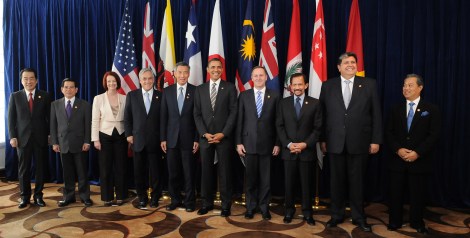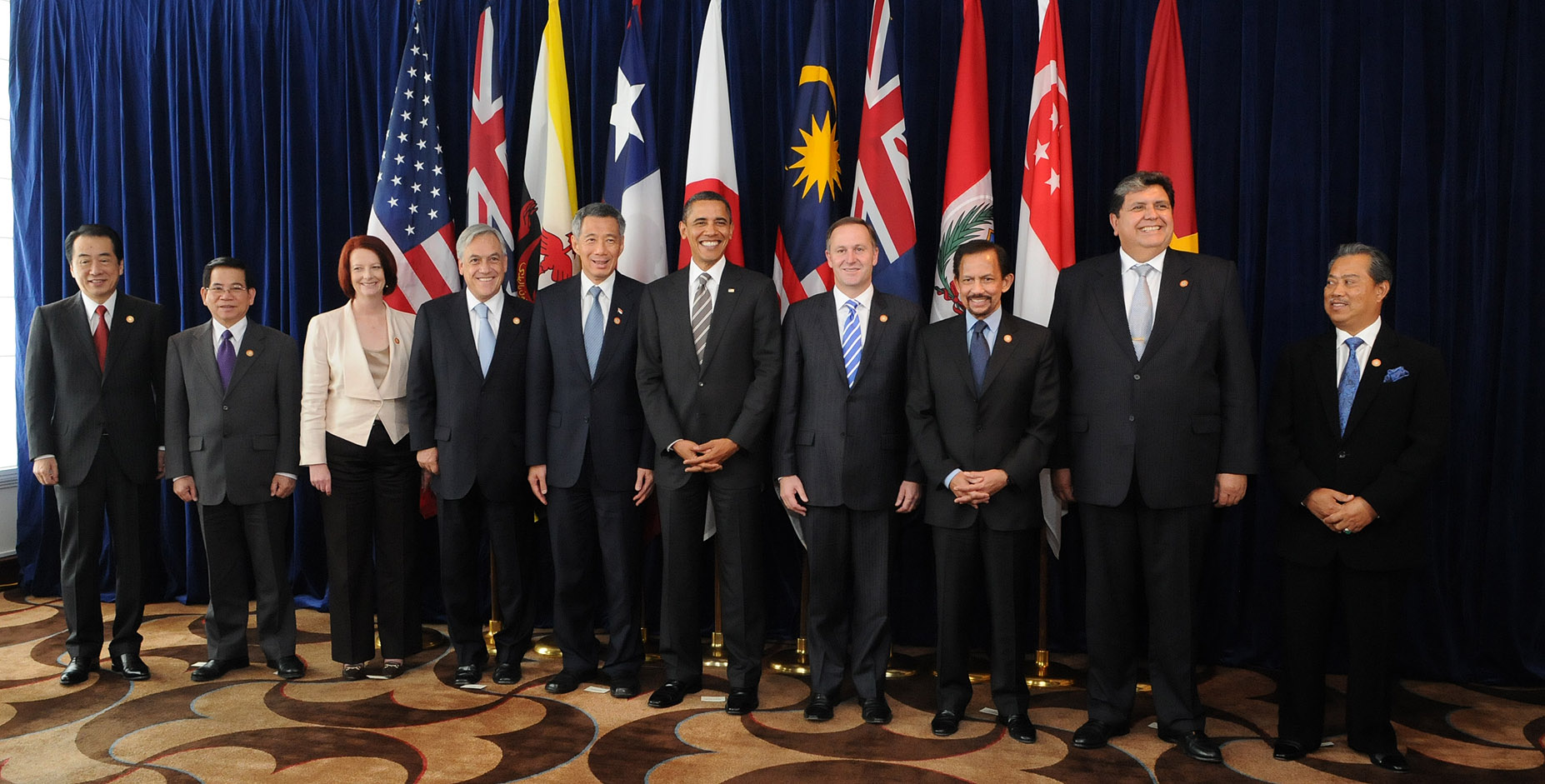
Wikimedia CommonsWhy are these leaders of Pacific trade group nations (gathered in 2010) all smiling?
Back in December, I wrote about the Trans-Pacific Trade Partnership (a.k.a. the TPP), a trade agreement whose passage is both a firmly stated goal of the Obama administration, and a great nightmare of environmentalists and civil liberties types, for a whole smorgasbord of reasons. Now there’s a new development: A leaked draft of the environmental chapter of the TPP appeared Wednesday on Wikileaks.
The main environmental critique of the TPP up until this point was that it would open up the U.S. to lawsuits from companies that had investments in American companies. Under the terms of a draft of the investments chapter, which was leaked back in 2011, any company that did business with the U.S. could argue, under the terms of the treaty, that our environmental laws were interfering with its ability to make money. The lawsuits, which are judged by special treaty-tribunal, don’t allow for any sort of appeal, and the records are not available to the public.
Just about every treaty since NAFTA has had an agreement like this, but the U.S. has largely been insulated from its effects — in the past, it always entered into these treaties with countries that were either too poor to have American investments or just not interested in them. The TPP would include Japan, Mexico, Canada, Australia, Malaysia, Chile, Singapore, Peru, Vietnam, New Zealand, Brunei, and possibly China. So it would shift a power balance that has, however unfairly, been tilted in the U.S.’s favor.
People had hopes, if not especially high ones, for the environmental chapter. The Obama administration had claimed that it would address some cutting-edge environmental issues. It was also thought to be a fairly pragmatic rehash of a Bush-era bipartisan trade deal drawn up between the U.S., Peru, Colombia, Panama, and Korea. That deal established a mutual agreement between all countries to work together to stop illegal logging, trade in endangered species, and overfishing, and to subject anyone found in violation to trade sanctions until they came into compliance.
It’s not that the bipartisan trade deal was that great. In reality, says Illana Solomon, director of the Responsible Trade Program for the Sierra Club, the bipartisan trade deal never even investigated anyone for environmental violations, despite tip-offs to the U.S. Trade Representative about documented instances of illegal logging in Peru.
But it’s still better to have a well-intentioned agreement that could one day be enforced by someone than an agreement that only asks that its signatories to, for example “make best efforts to refrain” from subsidizing aspects of their fishing industry that contribute to overfishing. The draft also, as it currently stands, contradicts laws that are already on the books. It does not, for example, ban shark finning, despite requirements under U.S. law that America seek a ban on shark finning with any country it enters into a trade agreement with. “The environmental chapter,” says Solomon, “is in really bad shape. It’s full of language that is weak and legally unenforceable, like ‘strive to’ and ‘endeavor to.'”
The leaked draft also doesn’t hold countries that violate the environmental chapter to the same standards as countries that violate the other chapters. No potential fines or sanctions! Instead, if a country is found wanting, it just has to promise to work toward changing its ways.
There are still ways that the TPP could founder. President Obama could fail to obtain the fast-track approval that he’s looking for. Congress could vote it down.
In the meantime, these leaks have been one of the few windows available into the process of modern trade diplomacy. So far, they’re unsettling ones.



